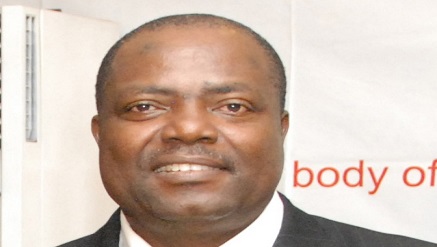Telecom
Bandwidth Consortium, Others Harp on IPv6 for Growth, Stability of Internet in Africa

Bandwidth Consortium in collaboration with Nigeria ICT Forum and AFRINIC has stated that deploying IPv6 is imperative to ensure the future expansion, openness and accessibility of the Internet.
According to them, “without timely IPv6 deployment, millions of Africa’s future Internet users may be excluded from reaching parts of the global Internet”.
They stated this at 4-day training at -The ICT Forum Training centre in Abuja, to provide Network Engineers with the required knowledge that would allow their organization to remain competitive in this growing technological world.
The event had 30 Network Engineers from 21 organizations including Research and Education Institutions, NgREN and network operators like Galaxy Backbone, Internet Solutions, and Phase 3.
In foresight, AFRINIC is leading the effort to promote and support IPv6 deployment throughout Africa to all stakeholders including network operators, mobile operators, academic institutions, end users, governments and regulators.
AFRINIC is the Regional Internet Registry (RIR) in charge of the distribution of Internet number resources (IPv4, IPv6 and ASNs) in the African region. IP addresses are critical Internet resources that allow devices to connect to the Internet.
Today the Internet is an essential tool for socio-economic development, and its exponential growth has resulted in the gradual depletion of the available pool of IPv4 addresses, thus making it crucial for Africa to deploy IPv6, the pillar of tomorrow’s Internet.
“Global IPv6 deployment is vital to the continued growth of the Internet and we have to act now to ensure that Africa enables its future users open and unhindered access to the global Internet. Our tailored IPv6 training program has been designed to help Network Operators and engineers in our region to better plan their IPv6 transition and to kick start deployment in their own countries. In addition to this, AFRINIC launched an IPv6 virtual lab in 2009 to widely support the community in hands on training for IPv6 deployment and offers information and documentation on a wide variety of IPv6 issues,” said Adiel Akplogan, chief executive officer of AFRINIC.
“We are very excited to see active participation by network operators and education institutions at this training. Along with the technical training received over the 4-day period, relationships have also been formed between the Network Engineers on the operators’ side as well as the customers’ side. This will definitely lead to improved quality of Internet services for everyone,” said Dewole Ajao, Operations manager of the Bandwidth Consortium.
AFRINIC also offers several other Training courses and other capacity-building programs designed to support and develop infrastructure development in Africa and the Indian Ocean region.
AFRINIC Trainings are free of charge and open to all, although priority is given to AFRINIC members and to experts in the field. The next training workshop will be held in Lagos, Nigeria, 12 to 15 August 2014.
For more information, please send a mail to [email protected]. Visit our website www.learn.afrinic.net to find out how you can reserve your place on one of our training courses.
Founded in 2005 and owned by Nigerian Research and Education Institutions, the Nigeria ICT Forum facilitates and nurtures collaborations between Higher Education Institutions (HEIs).
Its mission is to cultivate a favourable policy environment and empower Nigerian HEIs for development through the utilization and sustenance of ICT networks, services and other resources.
The Nigeria ICT Forum also hosts the annual Nigerian Network Operators Group (http://forum.org.ng/ngnog/about) and the Bandwidth Consortium (http://bandwidthconsortium.org) which is improving access to knowledge and opportunities by supplying high quality Internet bandwidth at lower-than-market prices through a wholesale approach.
Telecom
Toriola, MTN Nigeria CEO again Defends Tariff Hikes amidst Backlash

Karl Toriola, chief executive, MTN Nigeria has defended recent tariff hikes by mobile network operators, stating they are essential for the “survival” of the telecoms industry in Nigeria, despite significant criticism.

Karl Toriola, chief executive, MTN Nigeria
The Nigerian Communications Commission (NCC) granted mobile network operators permission to raise tariffs by up to 50% last month, a change reportedly implemented on 11 February.
The increase has sparked public outrage, as mobile connectivity has become a vital necessity in daily life across the West African nation.
In an interview with Developing Telecoms, Toriola pushed back against criticism that the price surge was excessive, arguing that tariffs should have increased by approximately 300% to reflect the naira’s sharp devaluation and the country’s soaring inflation.
Addressing the impact of currency devaluation, Toriola emphasised that MTN purchases network equipment and software in US dollars, a process that has become significantly more expensive. With the naira’s decline, operators are now receiving three times fewer dollars than they did in 2023, making operations more challenging.
In February 2023, businesses could exchange 460 naira for one US dollar, but the currency has since devalued sharply. At the time of writing, a single dollar was worth 1,510 naira.
As Nigeria grapples with the sharp devaluation, MTN has been severely affected.
The company was technically bankrupt in 2023 as its liabilities surpassed its assets—a deeply concerning issue for the wider MTN Group, as Nigeria remains one of its highest revenue-generating markets.
“Because of these factors, we’ve seen our costs rise dramatically. The cost of leasing tower space and supplying energy to cell sites increased by 120% in the first three quarters of 2024. So, in comparison, a 50% tariff increase is not that high,” said Toriola.
Telecom
IoT West Africa & Data Centre Cloud Expo 2025 Set to Boost Africa’s $180Bn Digital Economy

The IoT West Africa & Data Centre Cloud Expo 2025, co-located with Power and Water Nigeria, is poised to play a crucial role in boosting Africa’s digital economy, projected to reach $180 billion by 2025 and contribute 5.2% to the continent’s GDP.

Shitij Taneja, Vertex Next Managing Director
Organized by Vertex Next, the three-day event will take place from May 13th to 15th, 2025, at the Balmoral Convention Centre, Federal Palace Hotel, Lagos. It will convene government leaders, industry experts, investors, and innovators to explore the latest advancements in IoT, AI, cloud computing, digital infrastructure, and energy solutions.
In a statement made available to journalists in Lagos, Vertex Next Managing Director, Shitij Taneja, stated that this influential event will significantly contribute to the continent’s digital economic growth.
He assured that the expo will feature a comprehensive conference program focused on the transformative power of IoT, AI, and digital technologies across various African industries.
According to Taneja, discussions will center on how these technologies drive economic expansion, improve connectivity, and increase efficiency in key sectors like telecom, energy, finance, and e-commerce. Government officials and business leaders are also expected to collaborate on strategies for scaling digital infrastructure and leveraging data for innovation and sustainable development.
As demand for secure, efficient, and scalable digital infrastructure surges, Africa’s data center market is expected to grow at a CAGR of 12% through 2030, reaching a valuation of over $5 billion.
The expo will feature high-level discussions on critical infrastructure development, investment opportunities, cybersecurity, and AI-driven data center expansion. Thought leaders from global cloud and data center giants will share insights into building future-ready facilities that power industries and drive economic progress.
With Africa’s power sector undergoing transformation, discussions will focus on smart grids, energy storage, and sustainable power solutions to support the continent’s growing digital economy.
The African Development Bank estimates that investment in energy and utilities must increase to $70 billion annually to meet rising demand. Industry leaders will explore the role of IoT and AI in optimizing utilities, managing resources efficiently, and developing smart, connected cities.
The rise of digital banking, fintech, and e-commerce is reshaping consumer experiences and financial transactions across Africa. The fintech sector alone attracted over $3 billion in investments in 2023, and e-commerce is projected to exceed $75 billion in value by 2028.
This expo will highlight how automation, AI, and IoT are creating secure, seamless, and scalable financial solutions, ensuring that businesses stay ahead in the fast-paced digital landscape.
Taneja disclosed that the IoT West Africa & Data Centre Cloud Expo 2025 aligns with Nigeria’s National Digital Economy Policy and Strategy (NDEPS) and Agenda 2063 of the African Union, both of which prioritize technological innovation, digital infrastructure, and economic diversification.
By bringing together policymakers and industry stakeholders, the event aims to support regulatory frameworks for digital transformation, foster collaboration between the public and private sectors, encourage foreign direct investment (FDI) in ICT and energy, and accelerate initiatives such as Smart Cities and e-Governance.
Telecom
NITDA Pledges to Foster Innovation with Cloud Infrastructure and AI Applications

National Information Technology Development Agency (NITDA) has reaffirmed its dedication to fostering an innovative ecosystem that balances regulation with industry growth. The agency is investing in cloud infrastructure, data classification, and AI applications to establish Nigeria as a leading digital hub in Africa.

Kashifu Inuwa, NITDA’s Director General, emphasized this commitment while speaking at the Africa Hyperscalers Digital Infrastructure Outlook 2025. The event gathered industry experts to explore Africa’s role in the expanding global AI-driven infrastructure boom.
In his remarks, Inuwa highlighted NITDA’s dual regulatory framework: rule-based regulation, involving strict compliance guidelines, and non-rule-based regulation, which allows for industry-led innovation with established benchmarks.
“Before we regulate anything, we need to be aware of the landscape, we need to be intelligent, we need to have data and make sense out of that data, we need to be dynamic because technology is fast-changing and we need to develop that agility within the regulatory framework,” Inuwa stated.
He also discussed the Cloud First Policy, introduced in 2019 to discourage excessive reliance on physical data centres. This policy encourages government agencies and private businesses to leverage cloud computing and digital solutions. Initially, businesses were granted waivers to use public cloud infrastructure, but NITDA is now pushing for local data centres to enhance their capabilities.
A major milestone for NITDA was its successful engagement with global hyperscaler providers, including Google Cloud, which pledged to collaborate with local data centres to drive cloud adoption and establish a hyperscaler data centre in Nigeria. This follows a meeting between Google CEO Sundar Pichai and President Bola Ahmed Tinubu in Paris, where the President shared his transformative ambition for Nigeria.
To further drive cloud adoption, NITDA is finalizing a framework that will mandate data classification, ensuring that certain data categories remain within Nigeria. This move is expected to attract more cloud service providers and bolster the country’s digital sovereignty.
Emphasizing the importance of AI applications, Inuwa disclosed that NITDA is prioritizing AI to enhance governance, regulation, and service delivery. He asserted that AI can revolutionize governance and business operations by automating processes, enhancing regulatory efficiency, and developing knowledge management systems.
Dr. Nadu Denloye, Co-founder of Telnet Nigeria Limited, also spoke at the event, highlighting Africa’s remarkable digital transformation driven by connectivity advancements, cloud adoption, data centres, AI, and a growing digital-native population. She expressed confidence in crafting solutions to drive Africa’s digital growth.
Other notable panelists included Dr. Ayaotunde Coker, CEO Open Access Data Centres and Chairman of the Africa Data Centres Association; Johnson AgboGbua, CEO of Kasi Cloud; Obinna Isiadinso, Data Centres Global Sector Lead at International Finance Corporation; Kazeem Oladepo, Chief Operating Officer at IHS; and Abibat Kazeem, Commercial Director at Bayobab.
This commitment by NITDA underlines its dedication to advancing Nigeria’s position as a digital leader in Africa through innovative solutions and strategic regulations.

 E-Financial2 days ago
E-Financial2 days agoSERAP Gives CBN 48-Hour Ultimatum to Withdraw ATM Fee Hike

 E-Financial2 days ago
E-Financial2 days agoFG Seeks Fresh $300m Loan from World Bank for Health Security

 General News2 days ago
General News2 days agoFG Drops Merger of NCAA, NAMA

 News2 days ago
News2 days agoBinance Chief Insists Some FG Officials, Reps Demand $150m Bribe

 News2 days ago
News2 days agoinDrive Unveils Cashless Bank Transfer Feature in Nigeria

 E-Financial2 days ago
E-Financial2 days agoCardinalStone Acquires Radix Pension Managers

 Telecom2 days ago
Telecom2 days agoNITDA Pledges to Foster Innovation with Cloud Infrastructure and AI Applications

 Telecom13 hours ago
Telecom13 hours agoToriola, MTN Nigeria CEO again Defends Tariff Hikes amidst Backlash
























